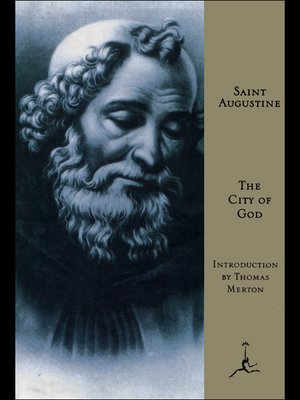
Sign up to save your library
With an OverDrive account, you can save your favorite libraries for at-a-glance information about availability. Find out more about OverDrive accounts.
Find this title in Libby, the library reading app by OverDrive.



Search for a digital library with this title
Title found at these libraries:
| Loading... |
One of the great cornerstones in the history of Christian thought, The City of God is vital to an understanding of modern Western society and how it came into being. Begun in A.D. 413 by Saint Augustine, the great theologian who was bishop of Hippo, the book's initial purpose was to refute the charge that Christianity was to blame for the fall of Rome (which had occurred just three years earlier). Indeed, Augustine produced a wealth of evidence to prove that paganism bore within itself the seeds of its own destruction. However, over the next thirteen years that it took to complete the work, the brilliant ecclesiastic proceeded to his larger theme: a cosmic interpretation of history in terms of the struggle between good and evil. By means of his contrast of the earthly and heavenly cities--the one pagan, self-centered, and contemptuous of God and the other devout, God-centered, and in search of grace--Augustine explored and interpreted human history in relation to eternity. After you finish The City of God it becomes clear why some have suggested that most of Western thought could be read as 'a series of footnotes to Augustine.' This edition of The City of God, in the Marcus Dods translation, is complete and unabridged. The introduction is by Thomas Merton, Trappist monk and author of The Seven Storey Mountain and The Waters of Siloe.






